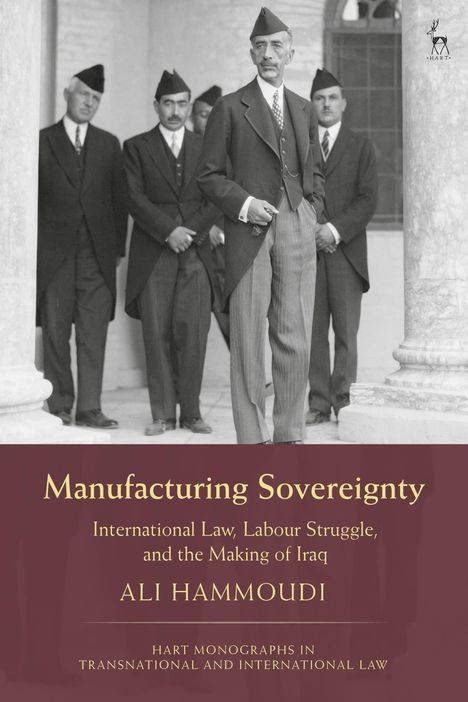Ali Hammoudi: Manufacturing Sovereignty, Gebunden
Manufacturing Sovereignty
- International Law, Labour Struggle, and the Making of Iraq
(soweit verfügbar beim Lieferanten)
- Herausgeber:
- Craig Martin Scott
- Verlag:
- Hart Publishing, 02/2026
- Einband:
- Gebunden
- Sprache:
- Englisch
- ISBN-13:
- 9781509952878
- Artikelnummer:
- 11915148
- Umfang:
- 304 Seiten
- Gewicht:
- 454 g
- Maße:
- 234 x 156 mm
- Stärke:
- 25 mm
- Erscheinungstermin:
- 1.2.2026
- Hinweis
-
Achtung: Artikel ist nicht in deutscher Sprache!
Klappentext
This book delves into the legal and labour history of the Hashemite Kingdom of Iraq to explore the role international law and its institutions played in Iraq's state formation. Focusing on a turbulent period in global and Middle East history, it shows how the case of Iraq became a laboratory for experimentation with the concept of sovereignty by the Permanent Mandates Commission of the League of Nations in Geneva. This resulted in the development of a doctrine of 'semiperipheral sovereignty' to justify Iraq's independence from the Mandate process. This novel doctrine and its operation within the provisions of the 1930 Anglo- Iraq Treaty ensured the maintenance of British dominance over Iraq, especially to safeguard the extraction and transportation of its valuable oil resources to Western markets. The book traces how this legal doctrine impacted the everyday lives of working class Iraqis. It explores the governance of the extraterritorial spaces of capitalist accumulation and labour exploitation, in particular the Iraq Petroleum Company oil fi elds, the Iraq State Railways and the Port of Basra. It goes on to detail how the oil, railway and port workers led by the Iraqi Communist Party effectively organised themselves into a nationalist revolutionary labour movement. They waged an anti-colonial struggle against these imperial legal structures to improve their lot, leading up to the 1948 Wathba, the 1953 Intifada, and ultimately the July Revolution of 1958, which upended the British-sponsored monarchy. Spanning various international archives and Arabic primary source materials, this book offers an example of a social, legal and labour history written from below, centering ordinary working peoples' agency in the historiography of international law. Drawing on Third World Approaches to International Law (TWAIL) and Marxist methodologies, it emphasises the signifi cance of the semi-periphery in the making of the international legal order.

